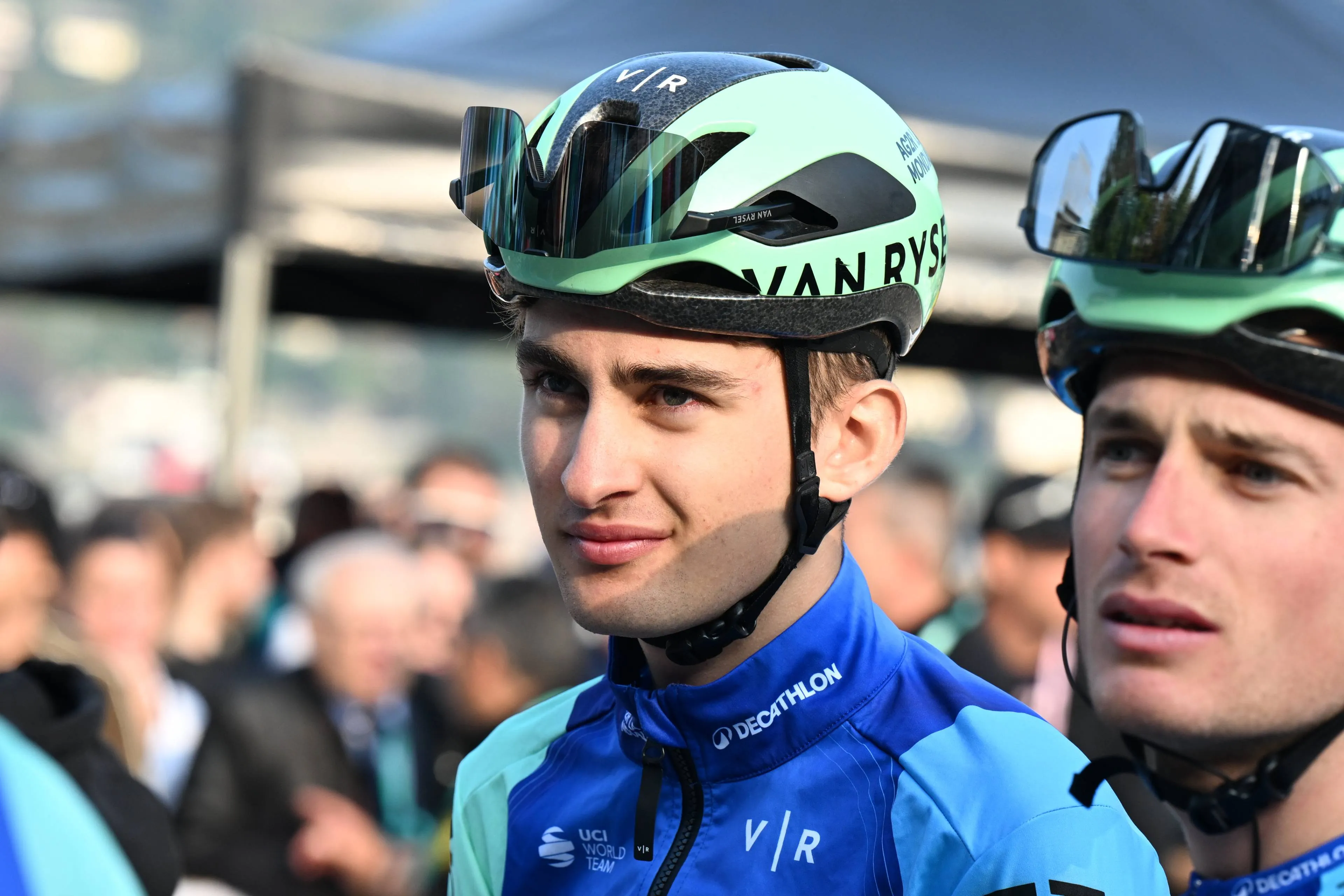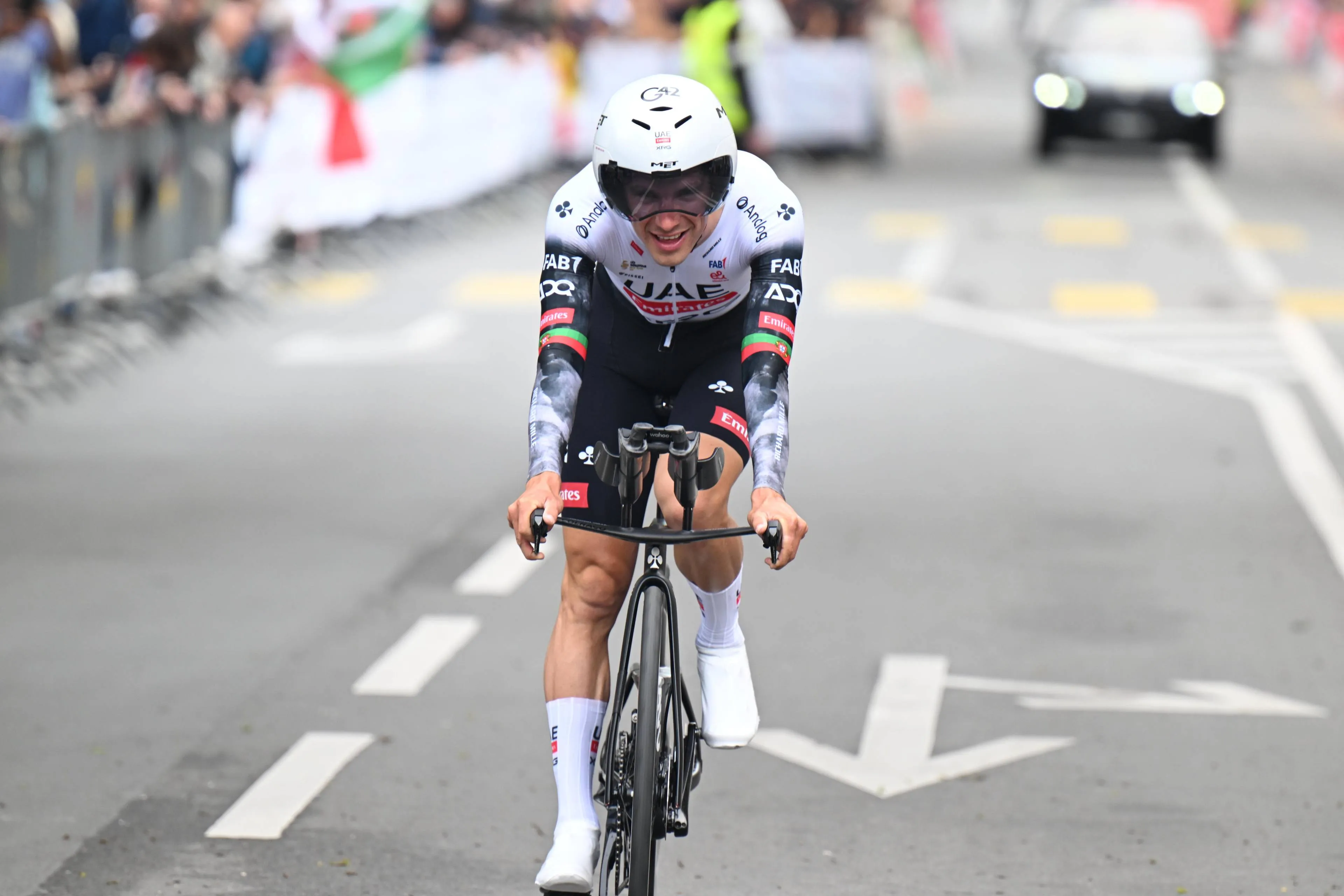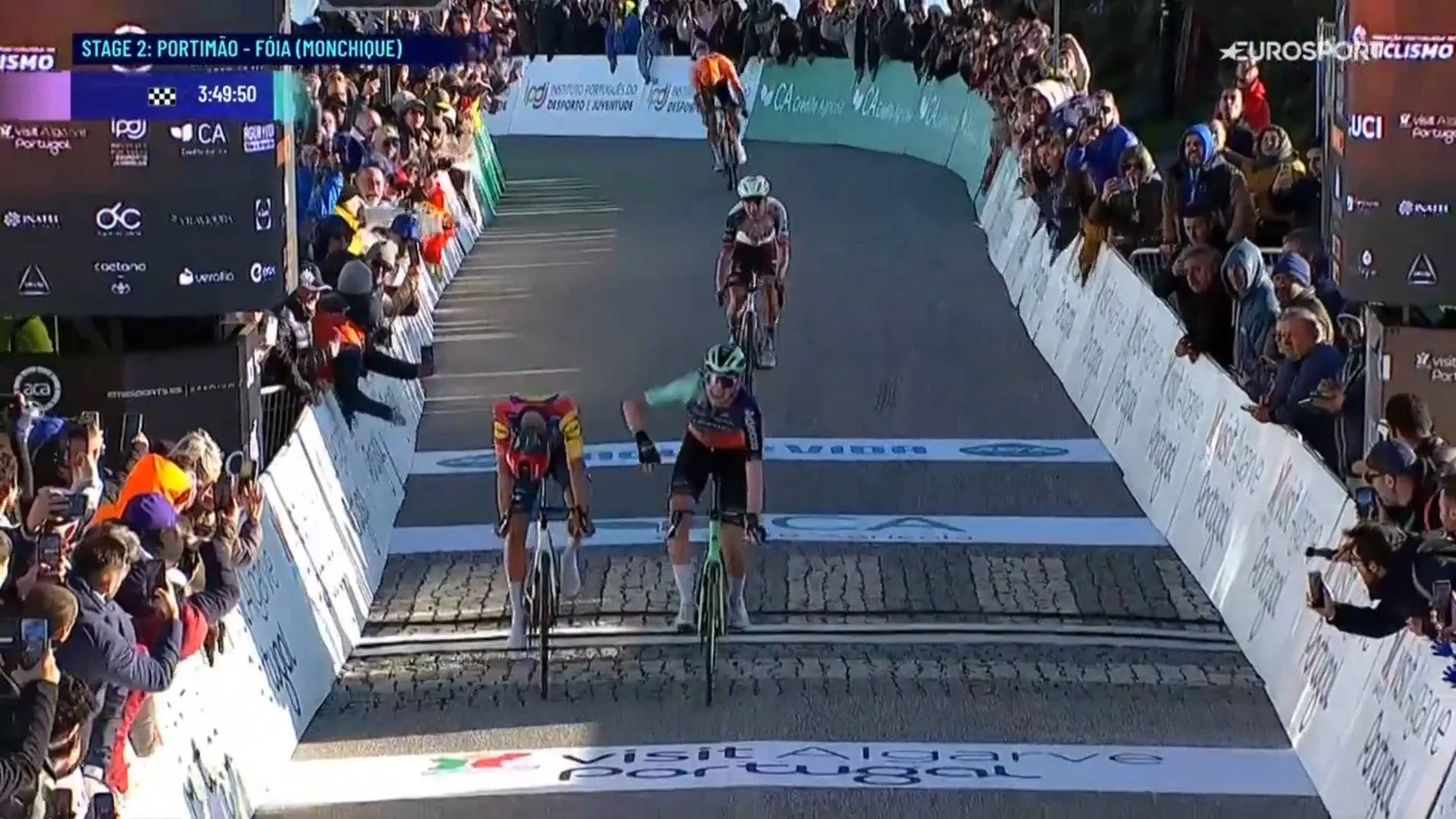Marco Pantani takes Passo del Mortirollo KOM - Strava Hacker takes prize away from amateur Jack Burke
CyclingFriday, 29 November 2024 at 10:30
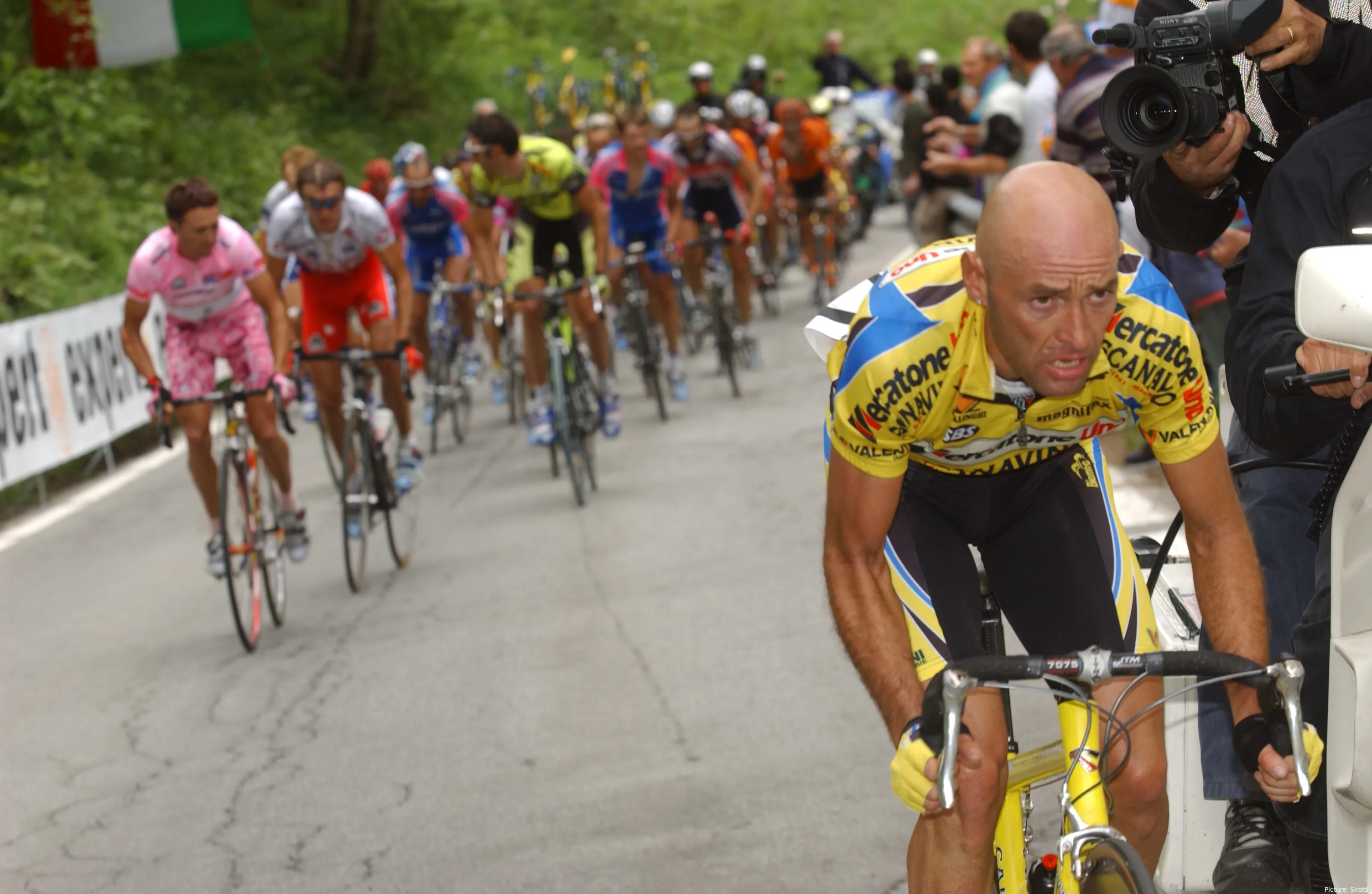
Over the last few days we've been watching with some enthusiasm and even relative sympathy the 29-year-old Canadian athlete Jack Burke, who is on a real crusade through Europe in order to beat the best times on the mythical climbs made by the current masters of modern cycling, with the aim of being able to have a hypothetical opportunity in a World Tour cycling team.
The idea is romantic, the athlete has even competed at a high level in the UCI Continental (he will certainly have a good value as an athlete) and his idea even fits in with the modern ideals that society has led us to in recent years, that is, from a commercial point of view, all market niches end up being driven in one way or another, to show that if we acquire material goods we can be whatever we want.
Read also
However, the idea of showing his worth on a digital training record platform might not be the best ticket for Jack to prove his worth on the World Tour, because in the world of high-performance cycling, it's well known that the technique acquired since cycling school is an increasingly appreciated step and the power and VO2 Max tests carried out in high-performance laboratories (and of course the results obtained by the athlete even in competition) are the real entry ticket to a World Tour team. Anything else could always be subject to suspicion or accusations of data manipulation by the general public. In this particular case, a Portuguese Strava hacker actually managed to beat all of Jack Burke's records/KOMs yesterday. The Portuguese user called "Anonymous Strava" from Lisbon beat Jack Burke's times from home and even joked about it by giving the training activity a suggestive title, "Zacarias Feijão Frade Sponsored by Vinho do Pacote".
At a time when digital certainties seem to be more and more words of truth, they will never be absolute certainties in high performance, but they will help and provide precious indicators for training and racing. Curiously, Jack's entire effort is dismantled from Portugal, never accusing the cyclist of not having actually made the climb in the time recorded. However, it will always be true that the digital platform in question will always be susceptible to hacking, although the Portuguese hacker only had his KOMs for a few hours, he ended up removing them perhaps out of a sense of respect.
Read also
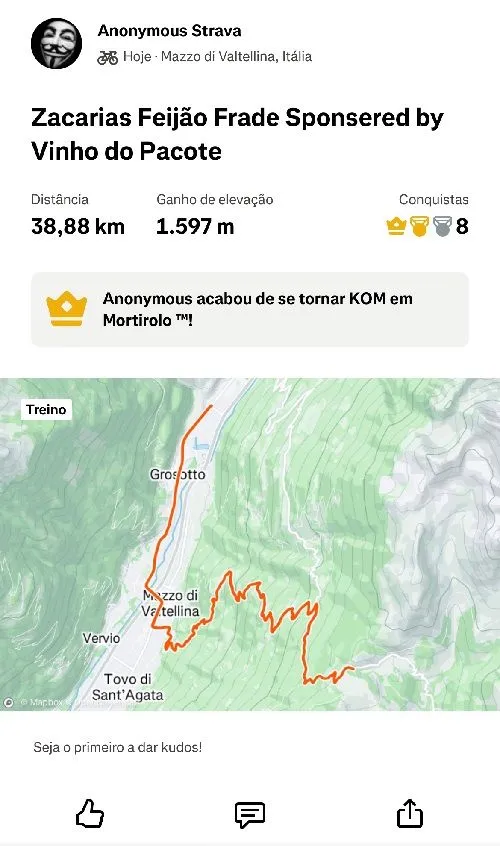
claps 0visitors 0
Just in
Popular news
Latest comments
- ok so this is impressive - I trashed this guy all winter, get a pro win before the anointing. against a quality field. And Onley and Riccitello look good too. fun to see young blood.mij19-02-2026
- Minor flaws.... thats like suggesting Genghis Khan was a bit aggressive with other countriesslappers6619-02-2026
- Then you carry on if that's what makes you happyslappers6619-02-2026
- Fabio cannot catch a break.mij19-02-2026
- OK, today is the "air conditioner"... yesterday was a cramp... on saturday a bee will sting him in his tongue... his tongue will swell up and mustafa gets no oxygen. Because of his swollen tongue, Remco won't be able to give us a new excuse. Remco and the spanish rat Ayuso should be on the same team. They both have a ton of excuses and both of them are liars. Ad acta.Mou-Cro-HR19-02-2026
- Florian Lipowitz is secretly happy
 Rafionain-Glas19-02-2026
Rafionain-Glas19-02-2026 - The crucial thing to remember is that Remco was broken by the pace of Gall and Tiberi, not Del Toro's. Remco's excessive antics are because he doesn't want anyone to think that he's 'genuinely' struggling. You can always say 'he got cramps' because 'his preparation didn't go to plan', but the thing is that there is a limit to the number of excuses and exceptions that there can be. Eventually everyone just accepts that he's reached his ceiling on the climbs.
 Rafionain-Glas19-02-2026
Rafionain-Glas19-02-2026 - Bahraini suspicious..Santiago19-02-2026
- The problem is, a British 'boss' opening the gates, when the native workers not wanting them!
 leedorney19-02-2026
leedorney19-02-2026 - Who is overrating him on climbs? Everyone knows since ages it’s his weakness and needed years of work. Question us if he can do enough about it. For sure he won’t be able to improve his TT enough to compensate.Mistermaumau19-02-2026
Loading
Write a comment


